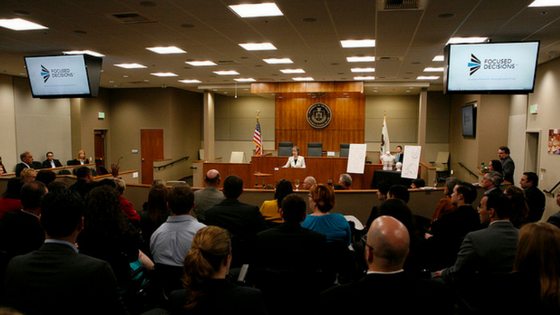Arguments were heard yesterday before a panel of judges in the Third Circuit Court of Appeals in the case of Dinaples v. MRS BPO, in which it was alleged that the defendant violated the Fair Debt Collection Practices Act by including a Quick Response, or QR, Code in a collection letter sent to the plaintiff.
The plaintiff was awarded summary judgment by a District Court judge, who ruled the defendant violated the third-party disclosure provision of the FDPCA by including the QR code on the outside of an envelope that contained a collection letter. Anyone who scanned the QR code would have been able to see the plaintiff’s account number with the collector.
Just because the code is on the outside of the envelope does not mean that someone would scan it, a lawyer representing MRS BPO, the collection agency, said during arguments yesterday.
“We have to look at the probability that anyone would do that,” said Michael Alltmont, a lawyer with Sessions Fishman, who is representing MRS, according to a published report. Noting that the code sent to the plaintiff was never scanned, Alltmont said the plaintiff was never “exposed to any harm.”
Just because it wasn’t scanned is not enough to rule out an invasion of privacy, noted one of the panel’s judges who heard oral arguments in the case.
Another judge noted that the FDCPA does not allow companies to include their names on the outside of a collection letter if doing so would disclose that the company is a collection agency. But even if the company name does not reveal that it is in the business of collections and thus is not a violation to include on the outside of an envelope, an individual could “Google that business and see if they are debt collectors,” said Judge Michael Chagares. Similar to a company whose name does not identify it as a debt collector, an individual would have to take the extra step of scanning a QR code to learn the letter was being sent by a collection agency.








